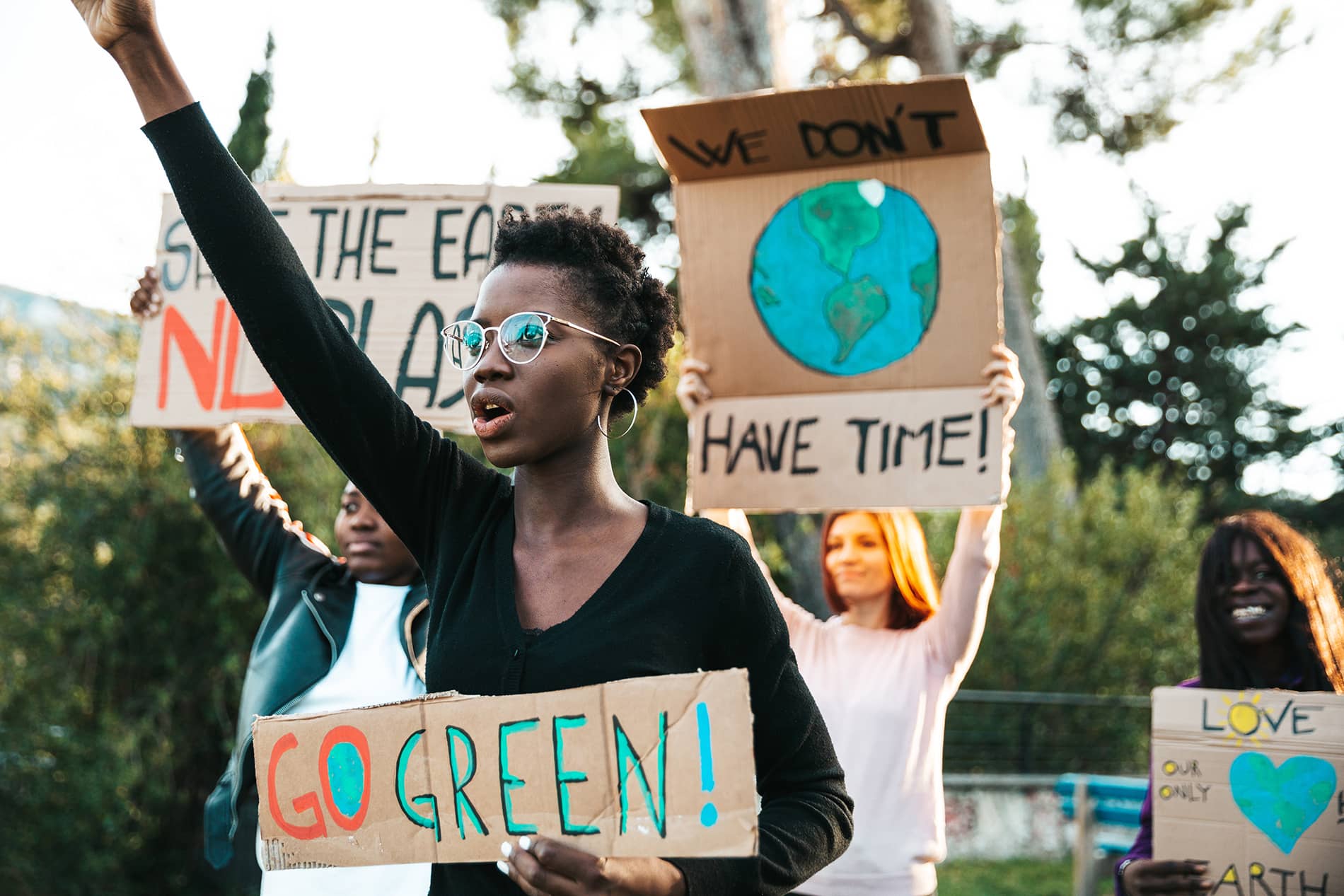'We Need to Act Now' - what young people want to say to global policymakers

In recent years, countries all over the world have seen what happens when young, engaged citizens are not provided with mechanisms to make their voices heard by their governments. Students in the Phillippines, Colombia and Iraq have taken to the streets in protest against their governments, while in Hong Kong, China and Iran they have stood up for human rights at great risk to themselves. Youth in the Middle East precipitated the Arab Uprisings, and subsequent demonstrations in countries such as Iraq, Lebanon, Turkey, Tunisia, and Iran continue to press for change.
Across economic, political and social causes, young people have shown their willingness to make themselves heard. Their determination for change can be measured by the risks they take in engaging in protest – young people have faced harassment, imprisonment, and even given their lives to the causes they so passionately stand up for. They are disillusioned by the unwillingness of governments to take their views into account, but certainly not disengaged.
They face an aging demographic of global leaders, increasingly out of touch with the youngest members of society. With global health widely improving and enabling us to live longer lives, the world is seeing a growing number of ‘gerontocracies’ - or societies and institutions where serving leaders are significantly older than most of the adult population. The wider the age discrepancy between leaders and their people, the harder they must work to bridge the resulting cultural gap and harness the combined power of experience and innovation.
A crucial first step is simply to listen to the younger generations and their priorities for policy action. They face unique challenges not seen by previous cohorts, and have matured alongside significant developments in technology, making them the most interconnected global generation to date.
At Generation Global we see every day how engaged, thoughtful and innovative young people are in dialoguing with their global peers about subjects of global importance. We were inspired to share their valuable perspectives beyond the programme, and engaged in a consultation with our network to gauge their top priorities for policy-makers to address.
After initiating the conversation through an online survey with over 300 young people in our Generation Global network, we went back to our roots and opened dialogues with students in India, Indonesia, Jordan, Mexico, the Philippines, the UK and the USA. Through these dialogues, students identified their top priorities, showing a consensus across borders, genders and age groups:
- Climate Change - they shared a fear that whilst action is being taken by governments, it is too little and too late to address the impact they are already seeing in their daily lives, and not collaborative enough to address a truly global issue.
- Education - they highlighted disparities in access, exacerbated by the pandemic, and concerns about the quality and focus of education systems that did not adequately prepare them for adulthood, independence and employment.
- Social inclusion - they spoke about deeply ingrained expectations and societal structures that limit opportunities for women and religious minorities, and the need for sustained and active efforts to advance meaningful inclusion.
“Climate change is not just a crucial problem in India or the Philippines – it’s a global problem. We should all be doing something against it … There are many youth leaders and activities, but if they could work alongside governments to formulate policies together, then there could be a benefit for the whole world.” Youth Participant, India
Beyond these priorities, they also raised another point that was echoed throughout the young people we spoke to – that they feared their concerns would not be taken seriously unless they were granted access to policy-making spaces themselves. Building on this insight, we worked with colleagues in the Tony Blair Institute for Global Change to analyse case studies and methodologies for youth inclusion around the world. Many countries and institutions are establishing youth advisory councils on a range of topics, researching young people’s perspectives like we did, or adopting future filters to assess the long-term impacts of their policies. It became clear that there is a wide range of opportunities for youth inclusion which could be expanded, funded, prioritised and institutionalised around the world.
“This is something youth are fighting for a lot. Us speaking out is really important because we are the next generation and what’s going to keep this society alive. For them to shut us up is very heartbreaking. Whenever someone speaks out there is a stigma attached, which we are trying to break out of. I’m really proud of the youth that keep on speaking out.” Youth participant, Philippines
The resulting report makes two things clear: that the young people of this interconnected generation are truly global citizens, united across demographics by common concerns, and that they are ready to make their voices heard.
“The problem has to do with government priorities. There is a lack of action from the people who have the power to make big changes.” Youth participant UK
Read the full report: Generation Global: The Global Concerns Shared by Young People
Check out the blog on Future Filters by our colleagues at the Tony Blair Institute for Global change: Future Filters: Giving Young People a Voice in Policymaking (institute.global)